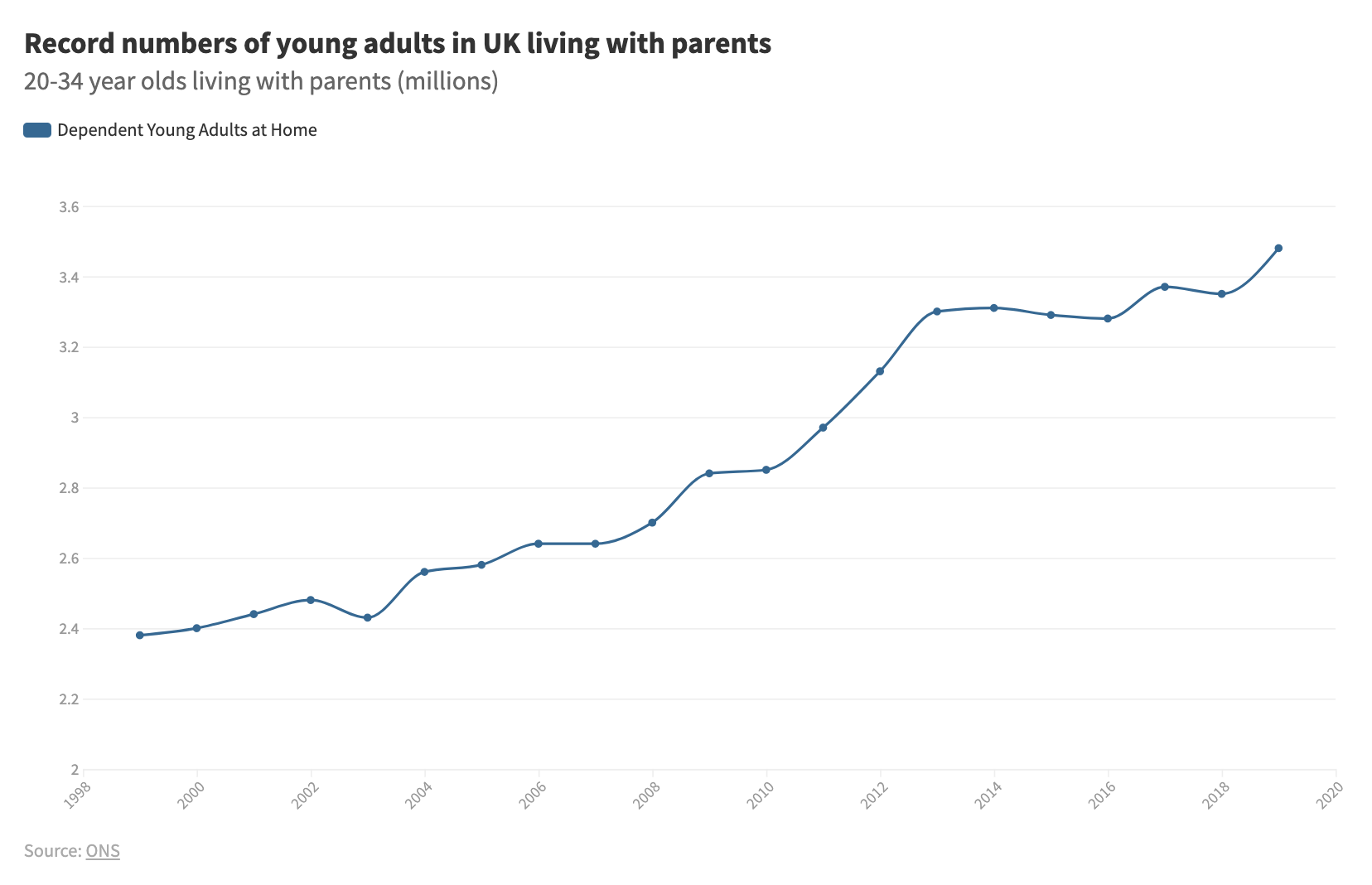

Figures have increased by 46 per cent over the last 20 years, reaching 3.4 million in 2019.
The number of young adults living with their parents increased by 46 per cent, according to statistics released by the Office for National Statistics (ONS). Data taken from the last 20 years shows that the number of households with dependent adults aged 20 to 34 years grew from 2.4 million to 3.5 million. This is figure is equivalent to more than a quarter of young adults of the same age group living with parents.
The upward trend for young adults staying at home for longer is considered to be a combination of factors such as choosing to stay in education and training for longer, formalising relationships and having children at older ages and the increased costs in renting or buying a home.
According to a report by the Intergenerational Foundation, a charity which promotes intergenerational fairness and the interests of younger and future generations, the proportion of total weekly expenditure spent on essential goods and services increased by 8 per cent for households in the under-35 age group between 2001–02 and 2016–17.
Reflecting on the figures, co-founder Liz Emerson said: “With housing costs eating up more than 30 percent of young people’s household expenditure outside London, together with other essential spending, they simply cannot afford to fly the family home and strike out on their own.”
The data also shows that London has the highest proportion of families with dependent children of all ages. Over the last five years this figure has increased by 9.5 per cent to 1.2 million.
The UK Government has made repeated promises to increase the accessibility of affordable housing for young people while opposition parties and campaigners have made further demands to introduce rent controls.
In the same period, the number of people living in one-person households has increased by a fifth to 8.2 million. The increase is in part driven by the growth (72 per cent) in the numbers of men aged 45 to 64 years old. In their report, the ONS cite a number of possible reasons for the increase: higher proportions of men than women never marry; men marrying at older ages and ‘partnership dissolution’, leading to men living alone while women may live with any children from the relationship.
The significant rise in the number of young adults living with parents shows no sign of abating. For many, the rising cost of affording life’s essentials – particularly housing – represents a challenging future for younger generations.
